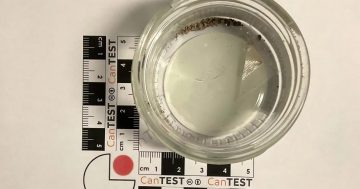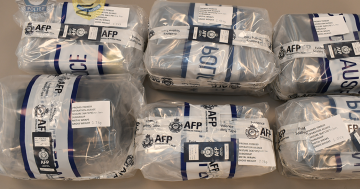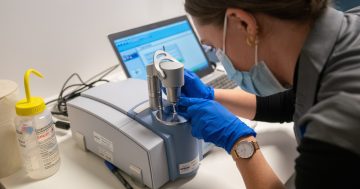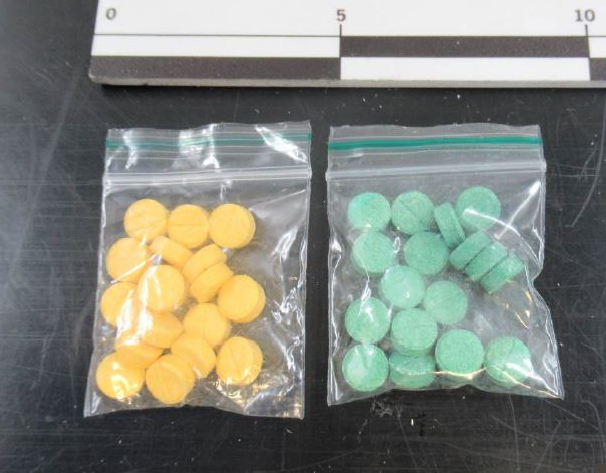
Metonitazene is increasingly being detected on our borders. Photo: AFP/ABF.
A joint public warning has been issued by two Australian law enforcement agencies over concerns a dangerous illicit drug could be hitting our streets.
The AFP and Australian Border Force (ABF) have seen a rise in attempted imports of nitazene, a synthetic opioid considered equal to or more potent than fentanyl.
ABF officers identified 22 detections of suspected nitazene imports in postal packages sent to Australia from the UK via mail cargo in October 2023.
They seized 742 tablets confirmed to contain metonitazene.
Before this, there had been only two other instances of the synthetic opioid being detected by the ABF.
A Northern Territory man was charged for allegedly importing 5 grams of metonitazene through mail cargo from the UK last year.
AFP officers received a tip-off from the Commonwealth Agencies Operation Centre (CAOC). It led NSW ABF officers to examine an international mail consignment where they allegedly found the drugs concealed in a vacuum-sealed package.
In another matter, a Western Sydney man was charged in August 2023 after he allegedly tried to import a variety of illicit drugs to sell online, including 97 tablets of a type of nitazene.
The drugs were allegedly sold on the dark web and concealed in a number of items, including cookware, toy cars and a blackjack set.
Authorities are concerned that, despite their efforts, some nitazene could have still made it onto Australia’s streets.
Canberra’s pill testing centre CanTEST detected nitazene in December 2022.
It led to the service’s first ‘red alert’ after the metonitazene was found in a yellow pill that had been sold as the pharmaceutical drug oxycodone. The person who brought the sample discarded the pill because of the CanTEST result.
At the time, an alert from the ANU warned the community to be “very worried” about the drug’s emergence in Australia.
“Originally developed in the 1950s by the pharmaceutical company CIBA, they have never been marketed for medical or veterinary use. They are synthetic opioids that are considerably more potent than morphine,” a statement read.
“Metonitazene itself is estimated to be between 30 and 200 times the potency of morphine. As such, nitazenes are of toxicological concern in the same way the illicit fentanyl family is – they have a track record of causing death from respiratory failure.”
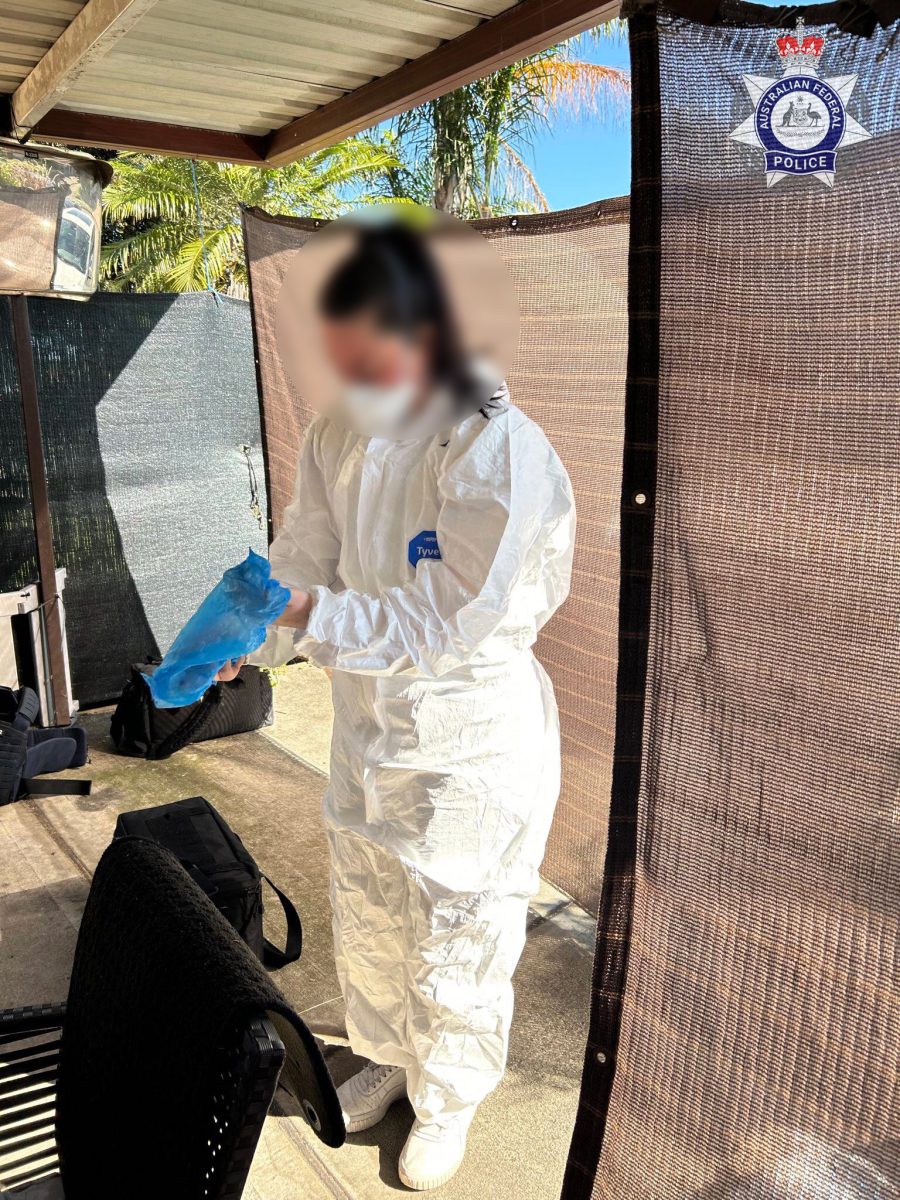
Both the AFP and ABF have warned that nitazenes are incredibly potent and can cause death from overdose. Photo: AFP/ABF.
Canberra Alliance for Harm Minimisation and Advocacy (CAHMA) executive director Chris Gough warned that not only were nitazenes very potent, they were being found masquerading and hiding in a variety of drugs, such as heroin, GHB, methamphetamine, MDMA and cocaine, as well as powders, tablets, nasal sprays and even vape liquids.
“This means that users of different types of drugs (many who are opioid naïve, or haven’t got a tolerance to opioids) are being exposed to this strong opioid, causing increased likelihood of overdose,” he said.
Mr Gough advised anyone who decided to use drugs to get it checked at CanTEST.
The impacts of nitazene (and other opioids) can be temporarily reversed by naloxone, and you can be trained in its use through CAHMA.
“[Our strong advice is to] make sure you are not using alone and make sure you are with a trusted group of friends who know what you have used; they can call an ambulance and administer naloxone if something goes wrong,” Mr Gough said.
“If an overdose occurs, make sure you ring 000 and then administer naloxone as in some cases nitazene overdoses can take several naloxone doses to reverse due to the strength of the opioid.”
As for the increased import attempts, AFP Commander Paula Hudson said officers were anticipating more detections this year.
“We are warning the community that there is no such thing as a safe dosage when it comes to this drug,” she said.
“If you choose to take this drug, the risk you are taking is your own life.”
For free and confidential advice about alcohol and other drug treatment services, you can call the National Alcohol and Other Drug Hotline on 1800 250 015. Free 24/7 drug and alcohol counselling and more information about addiction and support are available through Turning Point.
Local information and support can be found through CAHMA. CanTEST service is located inside the City Community Health Centre at 1 Moore St, Canberra City. It is open every Thursday from 3 pm to 6 pm and Friday from 6 pm to 9 pm.













